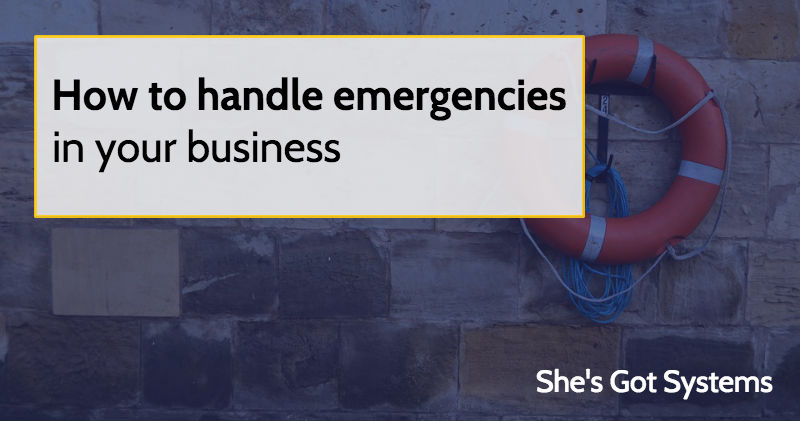I was finally in the water a few miles off the shore of Cozumel after years of planning to visit the island and putting my snorkel skills to good use on a reef when everything went pear shaped. The first indication was the leader of our small group of snorkelers went back to the boat, something I didn’t immediately notice. The second indication was the boat pulling away, leaving me and an 8 year old in the water.
Not sure what was happening, we swam toward the small vessel only to be shouted out to “stay away!” from the motor. The kid’s parents were not experienced in the water and nervously watched as I kept an eye on him swimming and watched the boat.
Eventually the boat turned and I could see a woman from our group lying on the bench, limp. Figuring she’d gotten seasick, we continued to swim, waiting for the boat to come back around. When it finally did and we climbed aboard I was shocked to find out the woman had experienced, and was still having, a seizure.
Most businesses don’t think of the emergencies that could happen in their day to day operations. And it was clear these entrepreneurs hadn’t either because they started to talk about the second reef location. After some arguing another passenger and I convinced them to go back to the dock now and to call an ambulance.
It was honestly terrifying, the boat speeding as fast as we could in a very busy marina, monitoring the woman’s pulse to ensure she was still somewhat stable, holding her as she continued to seize. When we got to the dock the paramedics were waiting and she was lifted onto a stretcher.
While this experience is one I never want to repeat, it got me thinking the rest of the day about how we handle the unexpected and emergencies in our own businesses.
Never assume “it won’t happen to me”
The easiest thing to do after hearing about how another business faced an emergency is to dismiss it. Even to think “well, I work online” is ignoring the real issue and that is to be prepared even if an emergency is unlikely.
If you do work with clients remotely maybe it’s as simple as having backup contact information for their partner or a family member in case the client becomes ill or is unreachable.
And if you do see clients or customers in person, know how you’ll address an emergency situation and inform your employees of those policies.
Remember what’s important
As a college junior my business law professor assigned us partners and we had to create a fake business and discuss the legal implications of that endeavor. When my partner chose a gym I thought it would be easy – until he said “if someone faints or passes out on our property we shouldn’t call the paramedics. If they hurt the client we would be liable.”
Uh, no.
When you’re addressing the harmful, and potentially fatal, impact on a customer it’s critical to remember what’s important. The captain of our snorkeling boat had the same problem, he didn’t want to cut our tour short or miss the next reef and it took us unnecessary time to assure him that a woman was seriously ill and we didn’t care.
It’s easy to get caught up in how something will look or inconveniencing others so recall the values of your business and that some things take precedent over lost income.
Reduce panic by planning ahead
It’s truly impossible to predict every emergency and create every alternative scenario but you can create some basic plans that, if they’re needed, reduce panic.
While I don’t like to personally test other businesses on this I can tell you that passing out at the Empire State Building threw their security team into a panic. Having also fainted at Disneyland I can tell you that the theme park is much better at handling emergencies.
When you’re considering what could happen, it’s often easy to get overwhelmed by “what could go wrong.” But remember when you were in school and they held emergency fire drills or, here in California at least, earthquake drills? Simply creating a plan and practicing will help your team should a situation arise.
Action Step: Create a page or section in your Operations Manual today and detail what should happen in the case of an emergency. Who should be notified? How do you call for backup or professional help? What constitutes an emergency?

 Never Train Your Employees Again
Never Train Your Employees Again Does Business Productivity Matter?
Does Business Productivity Matter? What happens when systems fail?
What happens when systems fail?